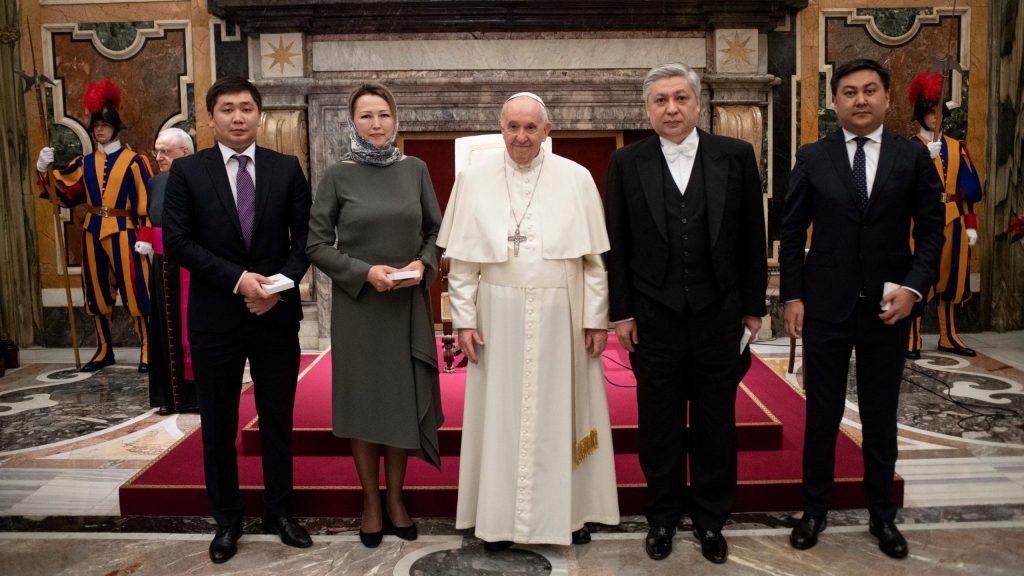The ongoing pandemic serves as a reminder that the world cannot move forward without cooperation and solidarity, Pope Francis told a group of ambassadors beginning their service at the Vatican.
In its effort to overcome COVID-19, the international community must come to the realization that "we are one human family; each of us is responsible for our brothers and sisters, none excluded," the pope told the new ambassadors from Moldova, Kyrgyzstan, Namibia, Lesotho, Luxembourg, Chad and Guinea-Bissau.
"This is a truth that should compel us to confront not only the current health crisis but all the problems plaguing humanity and our common home -- poverty, migration, terrorism, climate change, to name a few -- in a solidary way and not in isolation," he said.
The seven new ambassadors were at the Vatican to present their letters of credential to Pope Francis Dec. 17.
In his address, the pope said that at the beginning of the year, many believed vaccinations "heralded a quick end to the pandemic."
However, despite the great progress that has been made, the international community must "intensify its efforts of cooperation so that all people will have ready access to vaccines."
"This is not a matter of convenience or courtesy, but of justice," the pope said.
Pope Francis said that while the pandemic "has brought out the best of humanity in terms of individual and collective acts of generosity, service and sacrifice," diplomats and the countries they represent must do more in promoting a "culture of encounter in service of the common good of our human family."
"Your work, dear ambassadors, is often done in silence and without public recognition," the pope said. "Yet you already understand what the world needs to learn from the pandemic: the need to cultivate relationships and facilitate mutual understanding with people of diverse cultures and backgrounds in order to work together for building a more just world."

